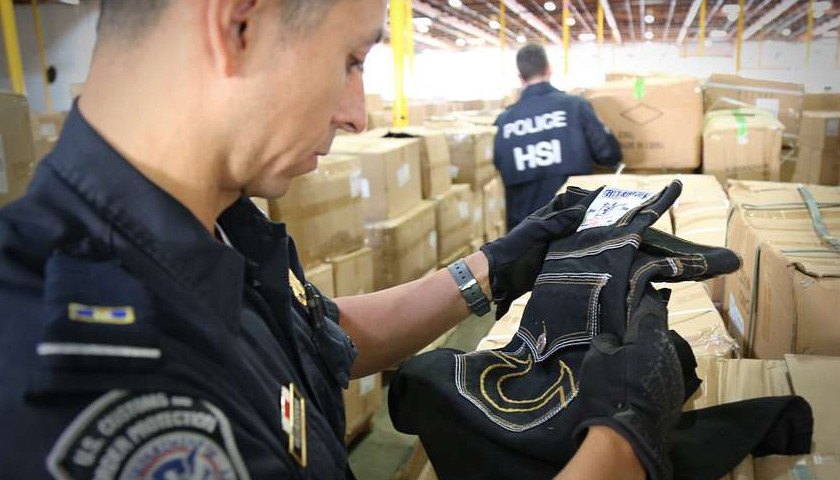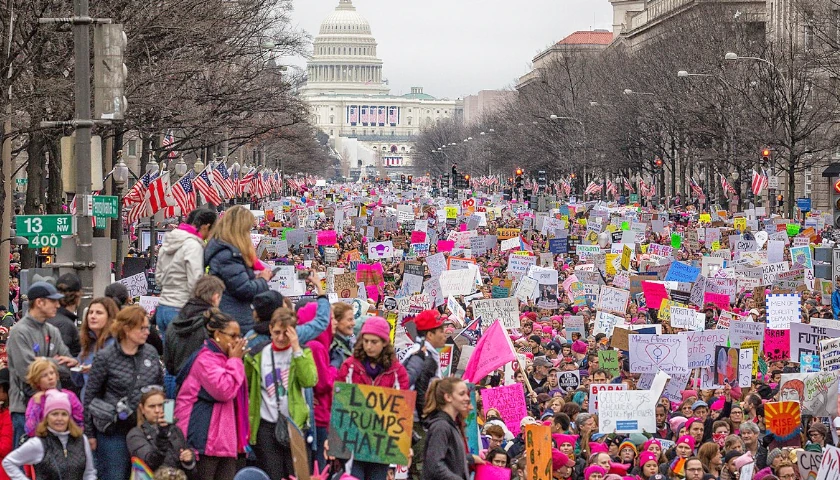by Chad Wolf
Illicit trade has increased significantly over the last several years, fueled in part by the growth in internet sales and the COVID-19 pandemic. While this criminal activity is happening in communities throughout the United States, the money often flows to dangerous organizations based overseas. Combating this issue is complex, but today we see a growing willingness to combine forces to help fight this danger.
Two years ago, pandemic-related shortages in health care supplies created an ideal environment for counterfeiters and other criminals. Front line health care workers needed personal protective equipment and were too often getting swindled or receiving fraudulent products that could put them at risk. This even extended to medicines and pharmaceuticals.
As acting U.S. Secretary of Homeland Security at the time, I recognized the severity of the problem and the challenges in preventing it. To prioritize DHS efforts, we published a first of its kind report entitled Combating Trafficking in Counterfeit and Pirated Goods outlining the steps DHS and the private sector could undertake. Illicit trade frequently crosses multiple jurisdictions and stopping it requires the cooperation of global trade officials, federal agencies, local law enforcement, and the private sector.
To prioritize this enforcement, the Department of Homeland Security launched Operation Stolen Promise. This operation brought together law enforcement and private sector partners to identify and investigate financial fraud and online scams during the pandemic. In its first year alone, the operation led to the capture of over $48 million in illicit profits and more than 2,000 seizures of mislabeled or fraudulent shipments of medical supplies, including 21.2 million counterfeit respirator masks.
But illicit trade goes far beyond the mere pecuniary interests of those involved. Sales from illicit trade also goes to fund dangerous cartels and terrorist networks. To effectively combat transnational criminal organizations, we must go after their funding both at home and abroad. The illicit tobacco trade is a key element.
Up to 21 percent of cigarettes consumed in the United States are purchased illegally, costing taxpayers up to $7 billion annually. In Cambodia, the illicit tobacco trade is generating profits for criminals that are in turn using child labor to bolster their networks. In Iraq, counterfeit cigarettes manufacturing is helping to fund insurgencies seeking to destabilize the region. And in Dubai, a free trade zone has become a hub of cigarette smuggling, and these illegal cash flows have been tied to groups like al-Qaeda, the Taliban, Mexican drug dealers, and Hezbollah.
When it comes to homeland security, the primary focus is keeping our communities safe from terrorism. But with the rise of the internet marketplace, we must also focus on ensuring that our communities aren’t funding terrorists and other threats. This is why cooperation across industries and sectors to fight this problem is so important.
By building upon the lessons learned from Operation Stolen Promise and establishing public-private partnerships to share intelligence and investigate leads, we can make full use of the collective expertise to get ahead of criminals through innovative technologies and solutions. This cooperation will also sow benefits at home through helping train law enforcement officers on how to recognize the signs of illicit trade in their communities and educate the public about the dangers of buying products from unrecognized sellers.
Illicit trade has been a boon to highly organized criminal networks and terrorists for years but, thanks to increasing cooperative efforts we are seeing in states around the country, their profitable days may soon come to an end.
– – –
Chad Wolf is the former acting secretary of the U.S. Department of Homeland Security. He currently serves as President of Wolf Global Advisors and Executive Director and Chief Strategy Officer of the America First Policy Institute.





